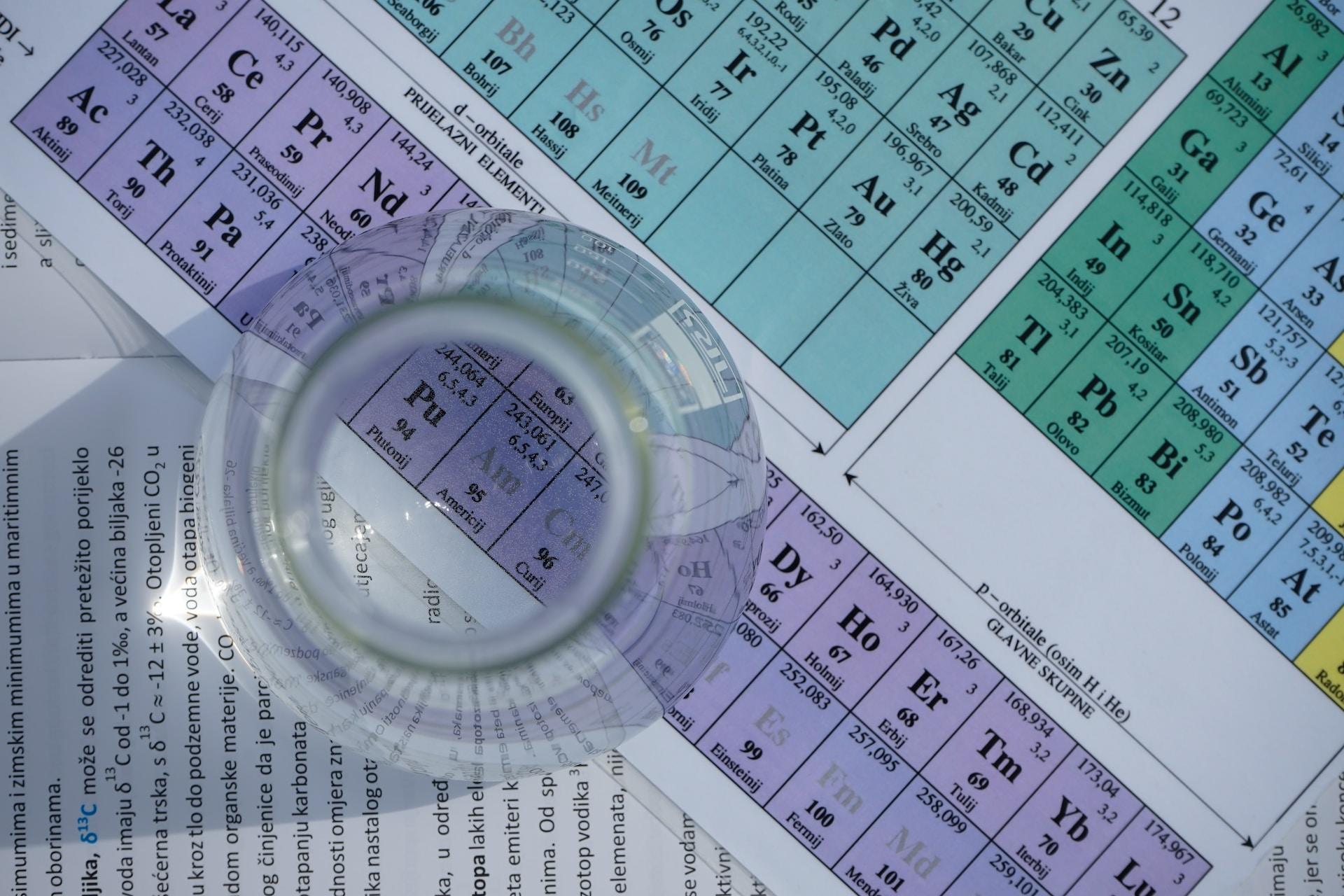The English language is full of motivating slogans like "Anything is easy if you put your mind to it!". That's a rather underhanded way to shame people who fail to perform. Indeed, it seems to accuse one of not trying hard enough.
In contrast, we have idioms like "The harder the challenge, the greater the... ". Some finish that sentence with 'growth' and others with 'reward' or some other 'prize' word.
But all of these phrases have one aspect in common: they focus on the task, not on the person doing it. That gives the impression that the accomplishment of tasks is more important than the people putting in the work.
Or that the tasks themselves matter more than the people who complete them.
This article means to turn that mindset around. We want to take into consideration that people have different skills and challenges. Everyone has their own preferences - course material they engage well with and that suit the careers they aim for.
Through that lens, let's look at some of the Higher School Certificate (HSC) courses.

The Hardest HSC Subjects Are Personal
Before we talk about any HSC courses you might select, we need to get a proper perspective on 'hard', 'easy' and 'challenging'. Being subjective is the one quality they have in common.
For example, someone who speaks more than one language would find language exams relatively easy. By contrast, a native English speaker who only just started taking language lessons would find exams in those subjects difficult.
We also have to think about whether you like, enjoy and/or are interested in a subject. For instance, if you've no interest in history and geography leaves you unmoved, you'll likely find those subjects difficult.
Not because the material is impossible to grasp but because your focus, attention and desire to learn about these subjects are less.
It also matters why you choose the courses you do. Should you select them because they relate to your future career, you may find some of your selections very difficult, indeed. But if you choose them for the possibilities they offer and the skills you'll learn from them, then they become merely challenging.
Mind you, 'challenging' is nothing to sneeze at and the difference between 'hard' and 'challenging' is subtle. 'Hard' lends your learning a brittle quality; it suggests study material that yields few benefits even if you penetrate its secrets.
By contrast, 'challenging' suggests 'doable, but with extra effort'. Rewards are neither suggested nor implied.
That leads us to a fork in the road: are you studying for some sort of reward or for the benefits learning brings you? If you're of the latter mindset, there are no 'hard' HSC subjects. If you're of the former school of thought, every HSC course will be difficult.
Defining the hardest HSC subjects is as difficult as highlighting the easiest courses, for the same reasons. Nobody but you knows what you find difficult - or easy; what you enjoy and what you merely tolerate.
So from here on, we'll point to more academically rigorous courses from an objective point of view.

What Is the Hardest HSC Subject?
By every measurement, extension courses are the most challenging. Maths and Sciences extension courses contain university-level subject material that put most high school students off. Statistics show that only a small percentage of students sit Maths Ex2 exams and even fewer choose Chemistry extension courses.
Also, according to the student message board Bored of Studies, Advanced English and English extensions are likewise off-putting.
So why does the New South Wales Education Standards Authority (NESA) make them available? The most obvious answer is that some students take them, even if their numbers are small. Temptation and diversity are more complex responses.
A student might be tempted to add an extension course to their HSC course selections because they know those courses scale well.
Students who plan to build their careers around those subjects need early access to university-level study materials. Undergraduate Maths and Science courses are challenging from the first term on. And then, add the upheaval of transitioning to university lectures after a lifetime of high school teaching. These extension courses bridge the space and style between high school and tertiary learning.
And speaking of tertiary... The less populated the course is, the higher the Australian Tertiary Assessment Ratings (ATAR) tends to be. The higher the ATAR, the more likely a student is to get a place in the university degree program of their choice. In that light, it's clear why students select extension courses.
Besides extension courses, languages seem to rank among the hardest subjects, from students' perspectives. Specifically, they mention Latin and Mandarin.
Also, many consider Physics difficult but more students cite Biology as boring because there's far too much content to learn. And many contend that English and Math Standard subjects are challenging even though they're supposed to be easy.

HSC Tutoring for the Hardest Subjects
By now, we should be clear that some subjects are more challenging than others and none are actually hard. So let's look at ways we can meet these challenges head-on. HSC tutoring is the most obvious solution.
Lots of students turn to tutors to help them prepare for their HSC exams. Test prep tutors know their subject material backwards and forwards. They keep up with the changes NESA makes to their exam questions and criteria. And best of all, they know what examiners are looking for in students' responses so they can coach their pupils to attain the highest test scores.
Engaging a test prep tutor is a good idea but it's only half of a solution. Sitting an exam isn't about memorising course content and spewing it on demand - although it might seem that way, at times. Your HSCs are supposed to give you the chance to use what you've learned. That's why past papers' marking schemes and examiners' reports show a range of points for each question.
Have you ever looked at any of those documents? Except for multiple-choice questions, each task offers a range of points. If the student shows some knowledge about the question, they get one point. But if they address the question's intent, they get the maximum amount of points.
So grasping your subject's overall meaning may help you pass the test. But thoroughly understanding what your subject is about and knowing how to apply that knowledge ensures high marks. Your HSC tutor's job is to help you do just that.
Let's pick an extension course from our HSC subjects list, maybe English or Mathematics. Regardless of the subject, your HSC tutor will first ask you why you chose this course. Once they know what your interest in it is, they will tie every lesson to that point.
For instance, if you plan on a career in engineering, they will show you how that material is used in an engineering context.
Superprof has more than 7000 HSC tutors who specialise in any subject you choose. If you plan to take Latin Extension, Harriet is the mentor for you. If you selected Mathematics, Saumya's teaching and engineering experience would suit you well.
Superprof HSC tutors give lessons online and in person, and they often offer their first session free.

Why It's Good to Take the Hardest HSC Subjects
Each year, students preparing to enter Year 11 start thinking about the end of their high school experience and where life will take them from there. Concerned adults in their circle begin to suggest career paths, with teachers often offering valuable input.
The only trouble is that the questions and suggestions follow the standard trajectory: high school to university to career. Hardly anyone asks students what they might be interested in.
It's that narrow focus that helps decide which HSC subjects are hard and which are easy. Often, students aren't sure what they want to do next year, let alone for the rest of their lives. And preparing for the world as it is does little to prepare them for the world as it will be when they graduate. So it's easy to understand the ongoing trend towards easier HSC subjects; students are choosing to take the path of least resistance.
Encouraging students to take a blend of 'easy' and 'hard' HSC subjects offers them the widest range of future possibilities. Nobody knows where their spark of inspiration will come from; they might find it while exploring Advanced English or Mathematics extension courses.
Wouldn't it be wiser to point students towards possibilities rather than probabilities so they'll have as many opportunities as they can?
Choosing a mix of courses also offers higher scaling possibilities. Scaling is a complicated process meant to ensure that every student's efforts are represented as fairly as possible.
It follows the same principles as economics' First Law: the greater the supply (of marks or points), the less they're worth. So taking some subjects that aren't crowded with other students' marks will make your own subjects scale higher.
Summarise with AI:















